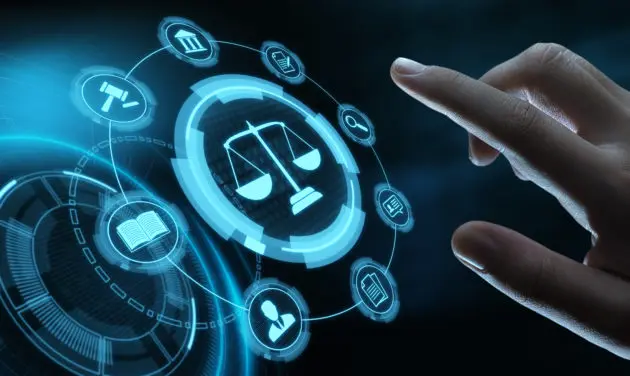The internet has revolutionised how people connect, share information, and conduct business, but its growth hasn’t been without challenges. With the vast expansion of the digital world comes an intricate web of legal and governance issues that demand attention. Internet law and governance cover a broad spectrum of legal frameworks and policies governing online activities. This dynamic field grapples with evolving regulations and conflicts that arise as technology advances faster than the law can adapt. This article explores key legal challenges shaping internet governance and their implications for the future.
Jurisdictional Issues
The global nature of the internet creates unprecedented jurisdictional challenges. When online activities cross borders, determining which country’s laws apply becomes complicated. For example, a business in the U.S. selling digital goods to consumers in Europe may find itself bound by European Union (EU) data protection regulations despite operating outside EU borders. Conflicts between legal frameworks create ambiguities for businesses and individuals, often resulting in prolonged legal disputes. Harmonising international regulations and fostering global cooperation remain a daunting yet crucial task to enable smooth internet governance.
Data Privacy and Protection
Data privacy is one of the most pressing concerns in today’s digitally connected world. With the proliferation of online platforms collecting extensive amounts of personal information, regulations to safeguard user data have become critical. Laws like the General Data Protection Regulation (GDPR) in the EU and the California Consumer Privacy Act (CCPA) in the U.S. set examples of how governments aim to protect consumers’ data. However, enforcing these measures poses difficulties, especially as companies find ways to sidestep regulations or operate in jurisdictions with weak enforcement. Striking a balance between privacy rights and business interests remains a significant challenge for legislators and regulators alike.
Cybersecurity and Cybercrime
The rise of cyberattacks ranging from data breaches to ransomware incidents has underscored the need for robust cybersecurity measures. Cybercrime, including fraud, identity theft, and hacking, continues to grow at an alarming rate, putting individuals, businesses, and governments at risk. Despite growing investment in cybersecurity, laws governing cybercrime often lag behind the rapidly evolving tactics employed by hackers. Governments worldwide face the difficult challenge of draughting comprehensive cybersecurity legislation while ensuring it does not impede internet freedoms or overburden businesses with compliance requirements.
Intellectual Property Rights
Protecting intellectual property (IP) is another complex issue in internet governance. Digital content such as music, films, software, and written works is easy to distribute and reproduce online, leading to rampant copyright infringement and piracy. Platforms like YouTube and social media face tough scrutiny regarding their role in enabling such violations. Governments and stakeholders continue to strive for fair IP laws that protect content creators while recognising the collaborative and open nature of the internet. Innovations such as automated content recognition mechanisms are being developed to address rights violations, but these too raise questions about fairness and potential overreach.
Freedom of Speech vs. Censorship
The internet remains an essential platform for the free exchange of ideas. However, the balance between freedom of speech and the need to moderate harmful content online remains contentious. Governments attempt to combat hate speech, fake news, and extremist content while ensuring these measures don’t infringe on citizens’ rights. Overly broad censorship laws implemented in some countries have raised concerns about stifling dissent and suppressing voices critical of the government. Social media companies also struggle with their role as content moderators, delicately balancing between censorship and safeguarding freedom of expression.
E-commerce Regulations
The rise of e-commerce has transformed how goods and services are bought and sold, creating a need for updated regulations that protect consumers while enabling businesses to thrive. Consumer rights in e-commerce transactions, cross-border trade complexities, and issues surrounding online payment systems are at the forefront of internet governance. Platforms like Amazon and eBay have revolutionised commerce but also face scrutiny over counterfeit goods, fair competition practices, and tax obligations. Establishing clear and enforceable e-commerce laws benefits both consumers and businesses, promoting trust in digital marketplaces.
Artificial Intelligence and the Law
Artificial Intelligence (AI) presents both exciting possibilities and significant legal challenges. From autonomous vehicles to AI-powered decision-making systems, there are significant legal questions surrounding liability, accountability, and ethics. For example, if a self-driving car causes an accident, determining who is responsible—the manufacturer, the software developer, or the vehicle owner—is unclear under current legal frameworks. Governments are attempting to regulate AI through guidelines and principles for ethical AI development, but much work remains to create comprehensive laws that address the nuances of AI technologies as they continue to evolve.
The Future of Internet Law and Governance
The future of internet governance will likely involve even greater collaboration between governments, tech corporations, and civil society. Emerging technologies such as blockchain, the Internet of Things (IoT), and quantum computing will raise new legal questions and regulatory needs. Additionally, calls for increased transparency, ethical governance, and inclusivity in policymaking will shape how the internet evolves. Governments must adopt flexible, forward-looking legal frameworks that can adapt to rapid technological changes while preserving individual rights and fostering innovation.
Moving Forward with Digital Governance
The digital age has brought immense opportunities and formidable legal challenges. Addressing jurisdictional issues, data privacy, cybersecurity, IP rights, and emerging technologies like AI requires a thoughtful, cooperative approach involving multiple stakeholders. By fostering international dialogue, implementing fair and adaptive laws, and empowering individuals to operate safely in the digital world, society can harness the power of technology for the collective good while mitigating its risks.
FAQs
1. What is internet law and governance?
Internet law and governance refer to the legal frameworks and policies that regulate online activities, encompassing areas like data privacy, cybersecurity, e-commerce, and intellectual property rights.
2. Why are jurisdictional issues a challenge in internet governance?
Since the internet operates globally, determining which country’s laws apply to cross-border activities can be complicated, leading to legal uncertainties and conflicts.
3. What are the key concerns with data privacy?
The main concerns include safeguarding personal data, regulating how companies collect and use information, and ensuring compliance with privacy laws like GDPR and CCPA.
4. How is AI impacting internet law?
AI introduces new challenges in areas like accountability, ethical decision-making, and liability. Governments are working on creating policies to regulate AI’s impact.
5. What’s the future of internet law?
The future will see a focus on flexible regulations to address emerging technologies, prioritise ethical standards, and promote collaboration among global stakeholders.




